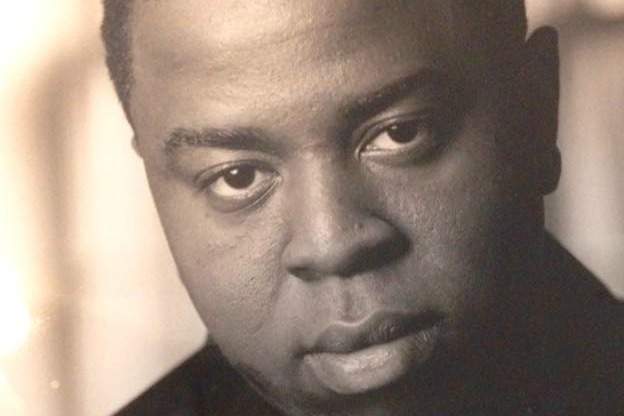
Shakespeare's Macbeth is a standard of the dramatic repertory. But in director David Kote's sold-out production of "the Scottish play" earlier this month at the IU Theatre, the casting was unusualthe title role was played by an African-American actor. WFIU's DeShawn Tyree spoke with Kotéwho's also African-Americanand actor Ian Martin about race issues on stage
Ian Martin: I didn't think I had really much of a chance to be Macbeth!
DeShawn Tyree: When you think about theater and cinema, as African American males we somewhat get pigeonholed or typecast. So, when you're going and approaching different roles is it in the back of your mind, will I get typecast?
I didn't think I had really much of a chance to be Macbeth!
IM: I certainly think about that in terms of my race all the time. Its definitely a conversation I have with myself. But I don't limit myself in that way. I know what are the great shows for people who look like me. I've done them even here. In The Red and Brown Water last year was just like,'Yeah! Tarell Alvin McCraney. Yeah, I want to be working on his stuff.' But, I can also do Macbeth, because I've trained.
Creating Opportunities
DT: Ian being an African American male lead, is this atypical for IU's program?
David Kote: I guess so, this being a university that is only four percent African American. So there are not a lot of opportunities for African Americans in that regard, but this just happened this semester. It wasn't like I set out to find an African American Macbeth. You have to deal with what you have in the casting pool. In the casting pool this lead us to this particular production. Which is a joy for me because it makes it more multicultural. It makes the experience a little different. To have a production where it's not the typical production here at IU.
DT: Tarell Alvin McCraney's In the Red and Brown Water is a play about an African American high school track star, who forgoes college to take care of her ailing mother. Did this play's demand for a majority African American cast pose challenges when you produced it at IU in the fall of 2014 ?
DK: It was kind of hard because you have to find all of the African Americans for the play. It was a challenge. I'm also a believer, if you build it they will come. It's about opportunities. If there are no opportunities, than no one is looking for the opportunities.
I certainly think about [being type cast by] my race all the time. But I don't limit myself in that way.
Happy Surprises
DT: Ian, do you think you there is a lot of space for African American males in theater and in IU Theater in particular?
IM: I would say certainly yes, with my experience with IU Theater. It's all about pursuing. It's always about moving forward. I go into this audition room, my first audition at IU, and there are all these black faces. I did not expect this, remotely! I ended up booking both shows. That was my introduction to IU. I think they sort of structure their program that way. To always have black shows in the canon in the cycle of a few years. But, it doesn't stop there. I think I am an example of that. You follow those things and you can get roles that are not necessarily 'for black people.'
DT: Having the show be sold out, that's the goal. That's what everyone wants. But having a non- typical actor in the lead role could bring about issues that maybe wouldn't translate to the show being sold out. However, it did sell out. Do you think your race had anything to do with that?
IM: I hope so. Because that is acting, you bring who you are to the character.
DK: We have pretty good marketing here. But the thing that really makes plays sell out is word of mouth. What you want to do is to have a play where people enjoy it and are entertained. Then you want people to talk about it. When people start talking about it, there is no better publicity than people saying 'hey you need to go check out this show.' You want to put that kind of work out there, where people want to come and want to feel the magic of theater. It's not just about giving the actor opportunities. It's about giving the community an opportunity to see the play.






